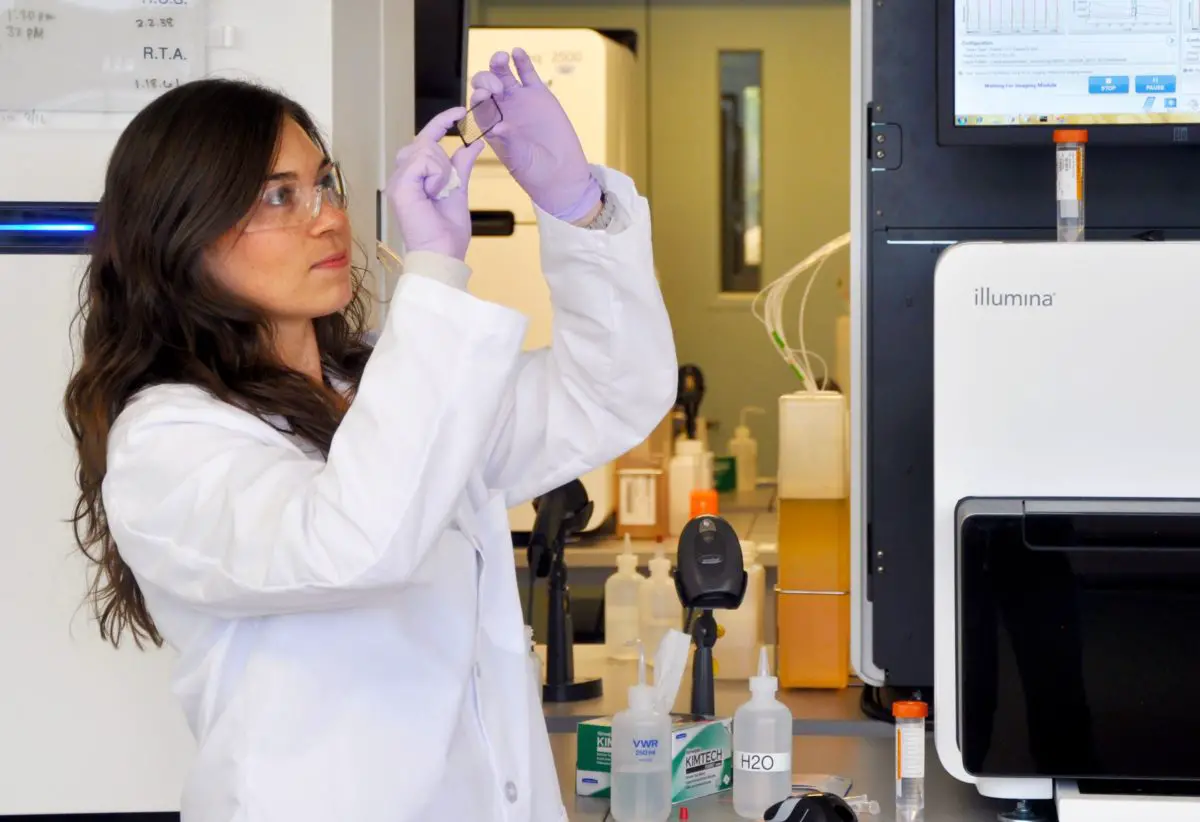Tarrytown-based Regeneron and the U.S. Department of Health and Human Services (HHS) are working together in an effort to develop a treatment for the 2019 novel coronavirus.
Research is taking place at Regeneron”™s labs in Westchester.
Alexandra Bowie, a company spokesperson at Regeneron, told the Business Journal, “The company”™s preclinical research and preclinical manufacturing is all done in the company”™s labs in Tarrytown.”
She could not speculate on how much time or money it might take before something effective is developed.
“It will depend on if we discover new antibodies for this disease or are able to apply existing antibodies, as well as the course of the outbreak and other factors,” she said.
Bowie said there is no risk that the Westchester population could be exposed to the new coronavirus as a result of Regeneron”™s research.
“We are not using live coronavirus and the pseudovirus cannot replicate. Our labs meet stringent safety requirements to keep our colleagues and community safe. When we do use live virus in our research, we take necessary precautions to meet or exceed all CDC-established Biosafety Level 2 and 3 requirements,” Bowie said.
The United Nations”™ World Health Organization has declared the outbreak to be a “Public Health Emergency of International Concern.” It has been spreading globally with 40,651 cases worldwide in 28 countries, 910 deaths and 6,495 people in critical condition and 3,550 people reported as having recovered from the virus as of 8:30 a.m. today.
The new coronavirus was first reported in Wuhan, China. During a conference call on Feb. 5, Nancy Messonnier, director of the Centers for Disease Control and Prevention’s National Center for Immunization and Respiratory Diseases, told reporters that there were 11 confirmed cases in the U.S. and 206 people in the U.S. were under investigation to determine whether they were infected.

Regeneron”™s association with HHS previously resulted in an experimental treatment for the Ebola virus. The company has been collaborating with the Biomedical Advanced Research and Development Authority (BARDA) at HHS.
According to HHS, there are no vaccines approved by the U.S. Food and Drug Administration (FDA) to protect people against contracting the new coronavirus. There are no FDA-approved medications specifically labeled to treat people who may become ill from new coronavirus infections. Treatments for similar viruses or symptoms similar to those produced by the new coronavirus have been having some effect against the new virus.
George D. Yancopoulos, president and chief scientific officer of Regeneron, said, “Our unique suite of technologies expedites and improves the drug discovery and development process at every stage, positioning Regeneron to respond quickly and effectively to new pathogens.”
Yancopoulos said the company and BARDA are both “working hard to address the novel coronavirus that is causing worldwide concern.”
Rick Bright, director of BARDA, said the agency has been working with Regeneron since 2014.
“We can move rapidly to respond to new global health threats,” he said.
The researchers will be working to develop a number of monoclonal antibodies to attack the new coronavirus. In 2017, Regeneron and HHS became involved in a program focused on discovery, research, development and manufacturing of a portfolio of antibodies targeting up to 10 pathogens posing significant risk to public health. That effort now includes coronavirus along with influenza.
A monoclonal antibody is a type of protein that can be engineered to bind to a particular substance in the body or, in the case of the coronavirus, certain proteins of the virus. If scientists can develop the right monoclonal antibody, or a series of monoclonal antibodies, they can be used against the new coronavirus to interfere with its ability to infect human cells.
The company”™s VelociSuite technology had been used to develop an antibody therapy that was used to treat Ebola during an outbreak in the Democratic Republic of the Congo. A related investigational therapy was developed to treat the MERS (Middle East Respiratory Syndrome) coronavirus, which has some of the same genetic makeup as the new coronavirus.
Regeneron characterizes its VelociSuite technologies as “particularly well-suited for use in quickly-developing outbreak situations as was done for Ebola.”
Bowie said the Regenron scientists will be pursuing two research routes against the new coronavirus. The first path will be working to discover new therapeutic antibodies for the disease. The second route would explore whether any of the company”™s existing antibodies are applicable to the disease.
Bowie noted that they are testing Regeneron”™s existing MERS antibodies but, since the new coronavirus is a different virus in the same family and is fairly distinct from MERS, they can”™t say whether there is a high likelihood that the antibodies would work against it. She said, however, they have some other existing antibodies that they think might be promising.
















